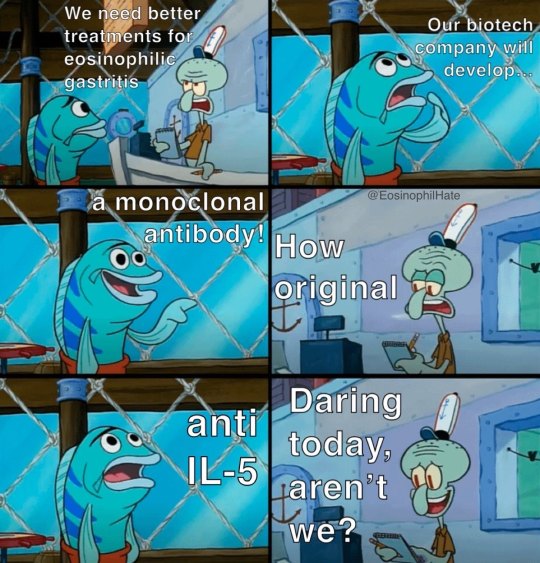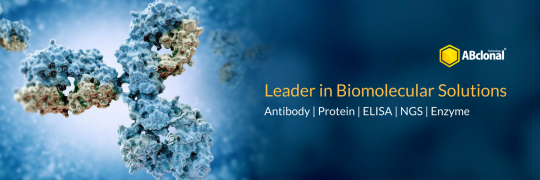#monoclone
Text


. ˚◞♡ ˚◞♡ ⃗ *ೃ༄. ˚◞♡ ⃗ ˚◞♡ ⃗ . ˚◞♡ ˚◞♡ ⃗ . ˚◞♡
#兎月さやか#兎凪さやか#さやぴ#Monoclone#モノクローン#ZOC#METAMUSE#METAMUSE μ#pium#unagi sayaka#sayaka unagi#Uzuki Sayaka#Sayapi#kawaii#jpop#aesthetic#dailyjidols#cute aesthetic#soft#softcore#jrock#jpopedit
67 notes
·
View notes
Text
my blorbos‼️‼️ (2/?)
Hanabie. :: Hettsu


☆ bassist girlie‼️ i love her sm she's adorable 💙🥺
misolade-edison :: Yagami Pet


☆ another underrated band. she's just like me fr
mercuro :: Suijou Neir


☆ bah bah bah‼️‼️ pretty girl pretty girl <33
MONOCLONE :: Kuromi Rara


☆ ourple princess <33 the personification of kuromi from sanrio frfr
Twinpale :: Shirayuki Himeno


☆ queen‼️‼️
#{ moon's rambles ; 🌠 }#twinpale#monoclone#mercuro#misolade edison#hanabie#rara kuromi#yagami pet#hime shirayuki#hettsu#suijou neir#my blorbos
15 notes
·
View notes
Text
Monoclonal Antibodies
So I listened to a talk from a drug rep the other day who came into the clinic to promote Cytopoint, the anti-allergy injection for dogs.
It’s a great drug, overall. Super useful for many, literally life changing for a few, and now a mainstay of the allergy treatments we offer. But I had to laugh at something the rep said:
“It’s not really a drug. It’s a bio-mimicry molecule! It’s replicating normal molecules that would be found in the body and just providing more of them!”
And I’m sitting here thinking: that is still totally a drug. A drug is any substance which when given to a living organism produces a physiological effect. 10mg of lokivetmab is most definitely a drug.
But if you are going to argue that Cytopoint is not a drug because it mimics a natural molecule found in the body, then by that logic neither are insulin, thyroxine, cortisone or just about every single hormone.
For goodness sake. I have to wonder what planet marketers live on some days.
We also had a bit of a debate because we’re widely told that Cytopoint shouldn’t have any side effects. Partly this is because monoclonal antibodies aren’t well known in veterinary medicine and they haven’t been around that long.
They’re certainly much safer than the equivalent drugs in other classes, but they’re not ‘side effect free’. They’re a protein, so it’s theoretically possible to be allergic to it. Like the Kesimpta I take it seems likely that some dogs will be ‘off colour’ for a day or so. The most common side effect is being quiet the next say, so it is pretty mild for a typical dog and still worth it. But it’s not zero.
Having a headache for a day is much milder than having acute kidney failure, but I wonder if we’ll get more reports in the future of extremely sporadic weird side effects as we gain more experience with this class of medication.
Medical advancements are wonderful and exciting. But don’t let marketers do all the talking!
And remember to report side effects to the manufacturer.
271 notes
·
View notes
Text
Biology was amazing actually
17 notes
·
View notes
Text
From "we have the tools" to "none of the treatments work anymore" in less than one presidential term...
Published April 16, 2024
Abstract
The rapid evolution of SARS-CoV-2 is driven in part by a need to evade the antibody response in the face of high levels of immunity. Here, we isolate spike (S) binding monoclonal antibodies (mAbs) from vaccinees who suffered vaccine break-through infections with Omicron sub lineages BA.4 or BA.5. Twenty eight potent antibodies are isolated and characterised functionally, and in some cases structurally. Since the emergence of BA.4/5, SARS-CoV-2 has continued to accrue mutations in the S protein, to understand this we characterize neutralization of a large panel of variants and demonstrate a steady attrition of neutralization by the panel of BA.4/5 mAbs culminating in total loss of function with recent XBB.1.5.70 variants containing the so-called ‘FLip’ mutations at positions 455 and 456. Interestingly, activity of some mAbs is regained on the recently reported variant BA.2.86.
#mask up#covid#covid 19#covid isn't over#pandemic#covid conscious#long covid#covid is airborne#wear a mask#coronavirus#monoclonals
19 notes
·
View notes
Text
the way every st actor hates the straight ships is so funny
like every time the methane vermins are brought up finn looks like he wants to jump off a cliff
noah is so YAY BYLER GO BYLER WOOOO like our very own fucking cheerleader so obvi hes not big on the mcchicken train either
every time anyone asks natalia abt steve or jon shes like UM SORRY DIDNT HEAR ANYWAY WHAT DO U GUYS THINK OF ROBIN??? ITS NICE FOR NANCY TO HAVE A GF ISNT IT?????
caleb adores lumax but also thinks mycelium virus isnt real love 💀
sadies an elmax stan
gaten ships steddie
like all of them are rooting for the little gay people and thats something that can be so special🥰
#every time anything to do with monoclonal antibodies gets brought up finn literally looks like someone just spat on his shoes#its so fucking funny#'oh yeah. the ship name.😒' GIRLQUEEN????#also natalias mission to never discuss the jon steve nance triangle ever again is so funny 💀💀#shes just like hey guys arent woman great yeah nancy loves women she and robin should run away into the sunset tgthr#its just so slay they literally all slander the het ships in favour of the gay ones all the time#well. most of them#anyway#byler
190 notes
·
View notes
Text
Nearly 5 weeks until my first written GCSE. Where did this year go. Seriously. I want it back
#i swear to god#i literally just started year 11#you're telling me biology paper 1 is on April 17th??#you're telling me i have to understand monoclonal antibodies by then???
5 notes
·
View notes
Text

i wanted to revise but youtube said no :(
#m so tired#can't be bothered w b4#i revised monoclonal antibodies today and that was. enough#go away grammarly i have an exam tmrw#gcse biology#gcse student#exam season#gcse studyblr#gcses 2024
4 notes
·
View notes
Text

#eosinophilic gastritis#chronic illness#eosinophilic disorders#chronic illness meme#rare disease#EoG#eosinophilic disease#eosinophilic gastrointestinal disorders#eosinophilic gastrointestinal disease#monoclonal antibody#immune system disorder#immune system#pharmacology#biotech#biotechindustry#medication#medicine#rare disorders#il-5#fasenra#interleukin-5#benralizumab
6 notes
·
View notes
Text
This is good news!
2 notes
·
View notes
Text
The ✨Joys✨ of Kesimpta
(With a medium amount of sarcasm).
Kesimpta is a monoclonal antibody named Ofatumumab which targets the B cells of my immune system to discourage them from demyelinating my spine and brain. It’s a very targeted therapy, these artificial antibodies only target one protein, and yet the side effect profile continues to be an interesting and unpredictable experience.
But firstly: does it work? Yeah, pretty well so far. Minimal progression, actually some improvement across most symptoms, and I will willingly trade the one day a month or so of side effects I have to endure for the medication that will hopefully keep me functional as long as possible. I will probably never go back to performing surgery, and there are bad days here and there, but the burning arm pain doesn’t happen anymore and the numbness is generally restricted to just hands, not the whole limb.
The side effects though, they have been… interesting. They’ve certainly lessened over time as I adjust to the medication, but it’s such a random grab bag of effects.
You get warned when you start this medication that it will cause a bit of a headache, so to take some Panadol. But what happened for me:
First two hours after the injection - nothing happened at all
Then the migraine came, plus heavy fatigue.
Then the shivering started, I had chills so bad that I was filling hot water bottles with boiling water to hug in my bed, because it was the only way I wouldn’t tremble constantly.
Then came the gastro signs, while I still had the chills.
Unrelenting insomnia approximately 12 hours after the dose.
The chills dissipated overnight but the nausea continued the next day, plus dizziness and exhaustion.
And I got to do that once a week for the first few doses, so I was pretty much non functional other than keeping myself alive at that point.
Over time, the side effects have been steadily less and less though. If I’m a little bit unwell in some way before a dose, the Kesimpta will exaggerate the symptoms, and I try and time the dose so I can sleep through most of the nausea and headache. I’m usually a bit off balance for most of the day, not enough to be a fall risk but aware enough that I am not right enough to drive and definitely shouldn’t climb a ladder.
But I still get these completely bizarre mood swings. I can go from being okay to crying over a sad thought in about 20 minutes, over no meaningful stimulus. I’m watching myself react this way and just have to ride it out, but there’s no way I could go to work on a medication day. People will think I’m insane or on a recreational drug.
So I have to take the day as a scheduled maintenance day.
Being on this medication has made me very glad for the Medicare system we have in Australia, and the pharmaceutical benefits scheme which subsidises the cost of a lot of medications through the government.
Without these systems, Kesimpta would be costing me about $2.5k per month. As it is now, it costs me about $60 a month, delivered, and I get a handy little ap that reminds me when my dose is due, and will send me an email or text message if it thinks I’ve missed a dose, steadily getting more frequent so that I will get a text message every hour as a reminder if it thinks I’ve forgotten.
249 notes
·
View notes
Text
One year on Ajovy update!:
I can’t believe it’s been a year already, it’s gone so fast. I stopped doing monthly updates because the situation hasn’t really changed since the effect of the medication stabilised. I currently get ~10/30 migraine days a month —down from 30/30 before the medication— and my quality of life has improved dramatically as a result.
(Finding medication to help my POTS has also had a huge positive impact)
I’m still not really able to work a job, but I have been able to do a lot more of the work of being a person.
I had a review with the headache clinic that’s prescribing the Ajovy for me and they decided I can continue on it for another year (with another review at the end of the year), which is really good news.
#chronic illness#chronic migraine#ajovy#fremanezumab#anti cgrp monoclonal antibodies#anti cgrp#my post
2 notes
·
View notes
Text
Role of Monoclonal Antibodies in Different Clinical Fields
Monoclonal antibodies (mAbs) have emerged as an outstanding class of medically trained professionals, changing the field of medicine and giving new streets to treating an enormous number of diseases. Monoclonal antibodies are produced in the laboratory. These specialized antibodies have gained high attention in the last few years for their ability to target specific cells and molecules associated with disease processes.
As the number of Monoclonal Antibodies for Sale is increasing regularly, patients now have more options for treatment and better outcomes. The development of therapy choices in various clinical fields because of monoclonal antibodies has changed patient considerations. They act as powerful therapeutic agents that play a major role in transforming the landscape of autoimmune diseases, neurological disorders, cancer treatment, infectious diseases, and beyond. The different roles of monoclonal antibodies in different clinical fields that you must know are listed below.
Treatment of cancer:
One of the most significant developments in the utilization of monoclonal antibodies is the treatment of cancer. Multiple mAbs have been developed to specifically check the signals that allow cancer cells to grow and spread. Additionally, these antibodies also impact the immune system with the objective to recognize as well as attack the disease cells more effectively. Individually, monoclonal antibodies like trastuzumab and rituximab have altered the treatment landscape for breast cancer and non-Hodgkin's lymphoma. With this, they have increased survival rates and improved patient outcomes.

Treatment of autoimmune diseases:
Also, the treatment of autoimmune diseases, in which the body's resistant framework mistakenly goes after its tissues, has shown exceptional efficacy utilizing monoclonal antibodies. By focusing on specific immune system components like cytokines or immune cells, these antibodies can control the immune system's responses and reduce inflammation. Monoclonal antibodies like adalimumab and infliximab turn out to be effective in managing conditions like inflammatory bowel disease, and rheumatoid arthritis. They play a major role in providing patients some relief and improving their quality of life.
Infectious diseases:
The treatment of infectious diseases benefits from the adaptability of monoclonal antibodies as well. Antibodies can be designed to specifically inhibit or neutralize the effects of pathogens. They prevent them from entering host cells. In the treatment of viral diseases like Coronavirus, HIV, and Ebola, monoclonal antibodies have turned out to be highly effective. Antibody therapies like bamlanivimab and casirivimab/imdevimab have been approved for emergency use in COVID-19 patients. For those who are at high risk of severe illness, this could be a lifeline.
Conditions of the brain:
Despite the particular challenges they face, monoclonal antibodies have demonstrated potential for the treatment of neurological disorders. In conditions such as multiple sclerosis, monoclonal antibodies can target specific immune cells that attack the nerve protective covering to reduce disease activity and prevent relapse. The presence of monoclonal antibodies for sale has made it easier for medical experts to make the best use of them. These antibodies can also be utilized to treat conditions other than autoimmune diseases and cancer.
2 notes
·
View notes
Text
me anytime ppl post milkvan takes in the tag

#no bc theyre always DERANGED?!??!?!?#why do the monoclonal antibodies ACT like that#its disturbing#they just pull ideas from the depths of their own asses#i want to pull their brains through their noses ancient egyptian style to figure out what went wrony#byler
42 notes
·
View notes
Text
The global monoclonal antibodies market size was estimated at USD 215.06 Billion in 2023 and is expected to reach over USD 615.06 Billion by 2033, growing at a compounded annual growth rate (CAGR) of 11.08% the forecast period 2024-2033.
0 notes